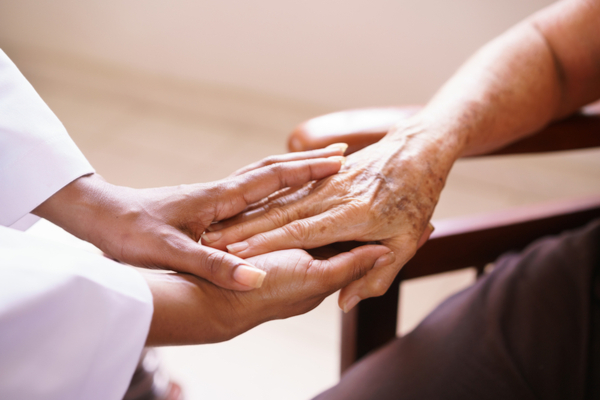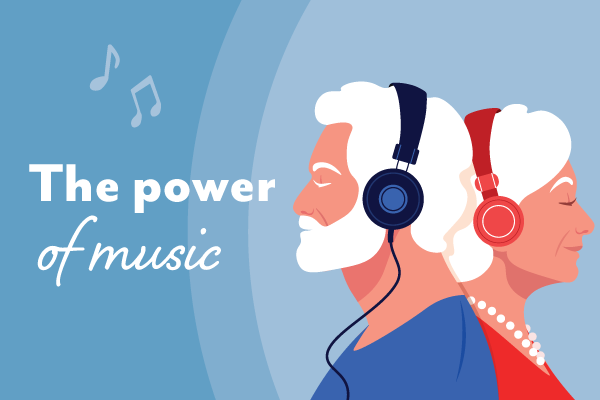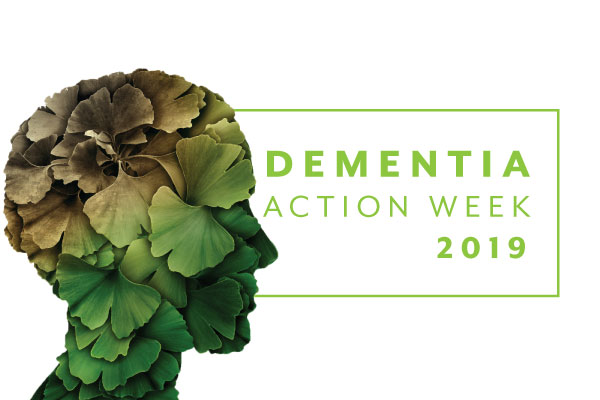You’ve heard that phrase the mind is a muscle, right? Thinking about the mind as a muscle means understanding that it is flexible and needs regular exercise.
As our population ages, more and more people face living with a cognitive impairment, but there are many unique ways to support elderly minds.

What is reminiscence therapy?
Reminiscence Therapy (RT) is a form of talking therapy which encourages people to review or revisit moments from their past.
RT has been used effectively in the treatment of conditions which impact memory and healthy brain function, like dementia and Alzheimer’s disease. Among the elderly, RT has been shown to have significant benefits and a range of positive effects, such as:
- Improved mood and behaviour
- Confidence
- Lessened strain on caregivers
- Improved sociability and strengthened connections with loved ones
- Reduced feelings of depression and loneliness
- Higher self-worth
How does it work?
Reminiscence therapy works alone or in conjunction with other forms of therapy, such as music and art therapy, by encouraging individuals to reconnect with past experience.
This approach is particularly effective in improving the lives of people with dementia because it targets parts of the brain connected to long term memory and cognition. Through talking and remembering, RT helps elderly people recover memories and connections, cognitive path s which have become inactive.
Many elderly people feel left behind or cut off from life, so recovering lost memories becomes an integral part of linking the elderly person to the wider world and to a sense of self and cultural identity.
Using Reminiscence therapy as an approach to aged care can enable elderly people to feel heard and have their stories and experiences valued. It can provide the missing links between how they feel now and how they once felt, as well as strengthen links to family and community by reminding them of their relationships, stories, culture and experience.
What a typical session might look like
Reminiscence therapy may involve a session with a therapist, but it’s not so different to something as simple as a conversation between an elderly person and their carer. The idea is to trigger memories, which might just be listening to music or taking a walk down a favourite path.
Memory does not always function in a linear way, which is why props and sensory stimuli – like hearing, sight, touch and smell – can be used to provoke important memories and associations. Some common props are:
- Photographs
- Music and video
- Familiar places
- Memorable food
- Memorable settings
The therapist will then talk through, analyse and seek to understand whatever memories arise and where they fit in with the elderly person’s life. They can also help to prompt further discussion of thoughts and feelings by asking open-ended questions and holding space for the elderly person telling their story.
Studies show that engaging elderly people in this way can have positive effects on mood, outlook, relationships and cognitive function.
Effectiveness and potential limitations
Reminiscence therapy has been shown to have a positive effect on people living with dementia, however it will only be successful if both the therapist and the elderly person – and to an extent, that person’s carers and supports – are willing to engage. This will ideally occur on a regular basis.
As with many forms of therapy, recovering connections to the past is a long and sometimes difficult process. Some people may be dealing with effects of trauma which make accessing memories challenging and unpleasant. Some individuals will make slower progress than others.
It is important for all parties involved to practice care, understanding and patience throughout the therapeutic process.
Being a good listener
Reminiscence therapy is usually done by a qualified therapist, but carers and family members can contribute to the therapeutic process with actions as simple as being a good listener.
Remembering that elderly people have a wealth of knowledge and many valuable lived experiences to share is a good place to start. Encouraging them to tell their stories or revisit things they have loved or enjoyed – like music, food, places and people – is a simple way to help elderly minds stay active, open and engaged.
Activities to try
Keeping the mind active as we age is the first defence against conditions like dementia. Here are five practical and fun activities to engage in with your senior client, relative or friend.
Music therapy
We all have that song which takes us back. Encouraging elderly people to reconnect through music is shown to be an excellent way of prompting memories, re-establishing connections and exciting the imagination. It’s also an enjoyable way for carers and loved ones to connect with elderly people by sharing the music which inspires them.
Mindfulness
Mindfulness basically means the ability to notice, be present and aware – vs being reactive, absent or overwhelmed. You can see how being mindful might contribute to recovering memory and being more engaged in daily life.
Mindful activities like meditation, body-scans and noticing – even if it’s only 5 minutes a day – can improve focus and memory, as well as calm the mind and alleviate feelings of anxiety and stress. It can also help elderly people with physical ailments by encouraging them to slow down, breathe and notice how their body feels.
Exercise
Exercise is a simple and rewarding way to stay present as well as recover memory – whether this looks like walking well-trodden paths, participating in group activities or stretching tired muscles.
Art and crafts
Like music, art therapy has been shown to have an extensive range of benefits for the elderly, helping them to connect with things they love and activities that have shaped their lives. Painting, drawing, sewing, knitting, cooking and making can all trigger memories and provide joys and pleasures in the present.
Getting out and about
Many elderly people struggle with feelings of loneliness, isolation and the sense of being cut-off from regular life. Helping them get out and about can improve their sense of connectedness and ability, which in turn improves feelings of self-worth.
Carers and loved ones can assist elderly people to go for walks, see friends, go shopping and attend social events. It’s also fun to do something special once in a while – like having a picnic or seeing a show.
Learn more
Our brains are elastic, no matter how old we are. Check out other articles on our blog to continue learning about ways mindful care can give dignity to dementia.



